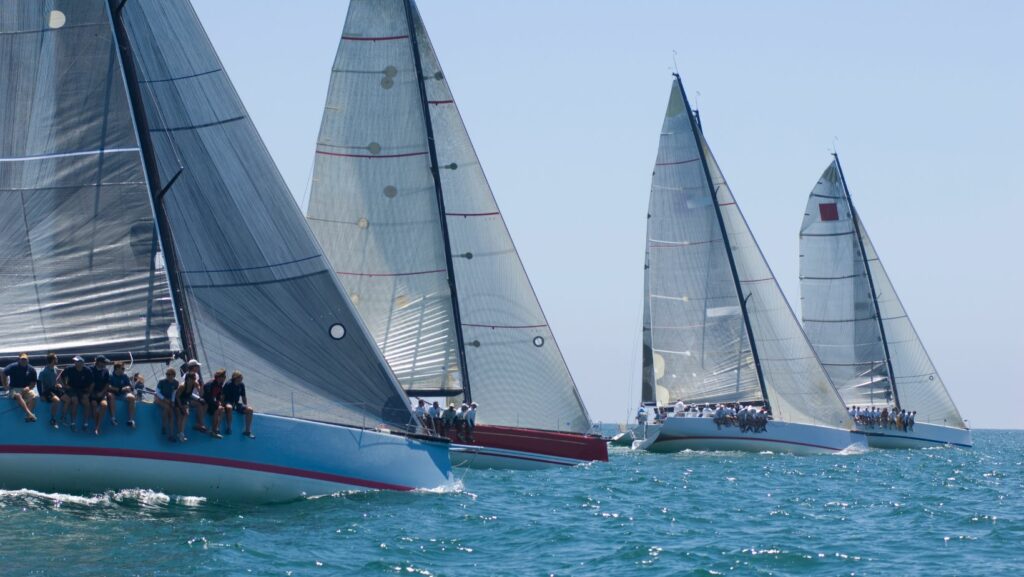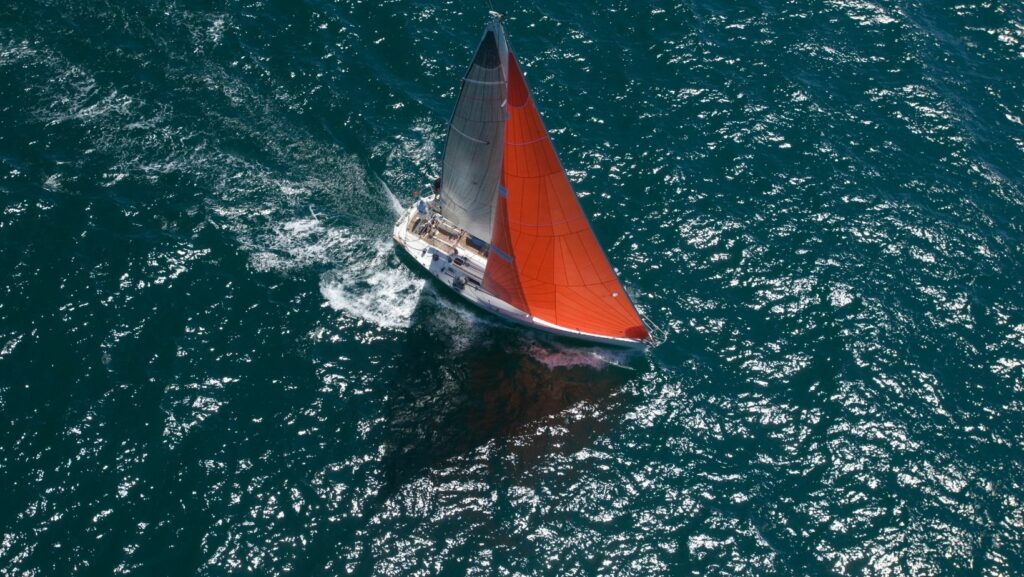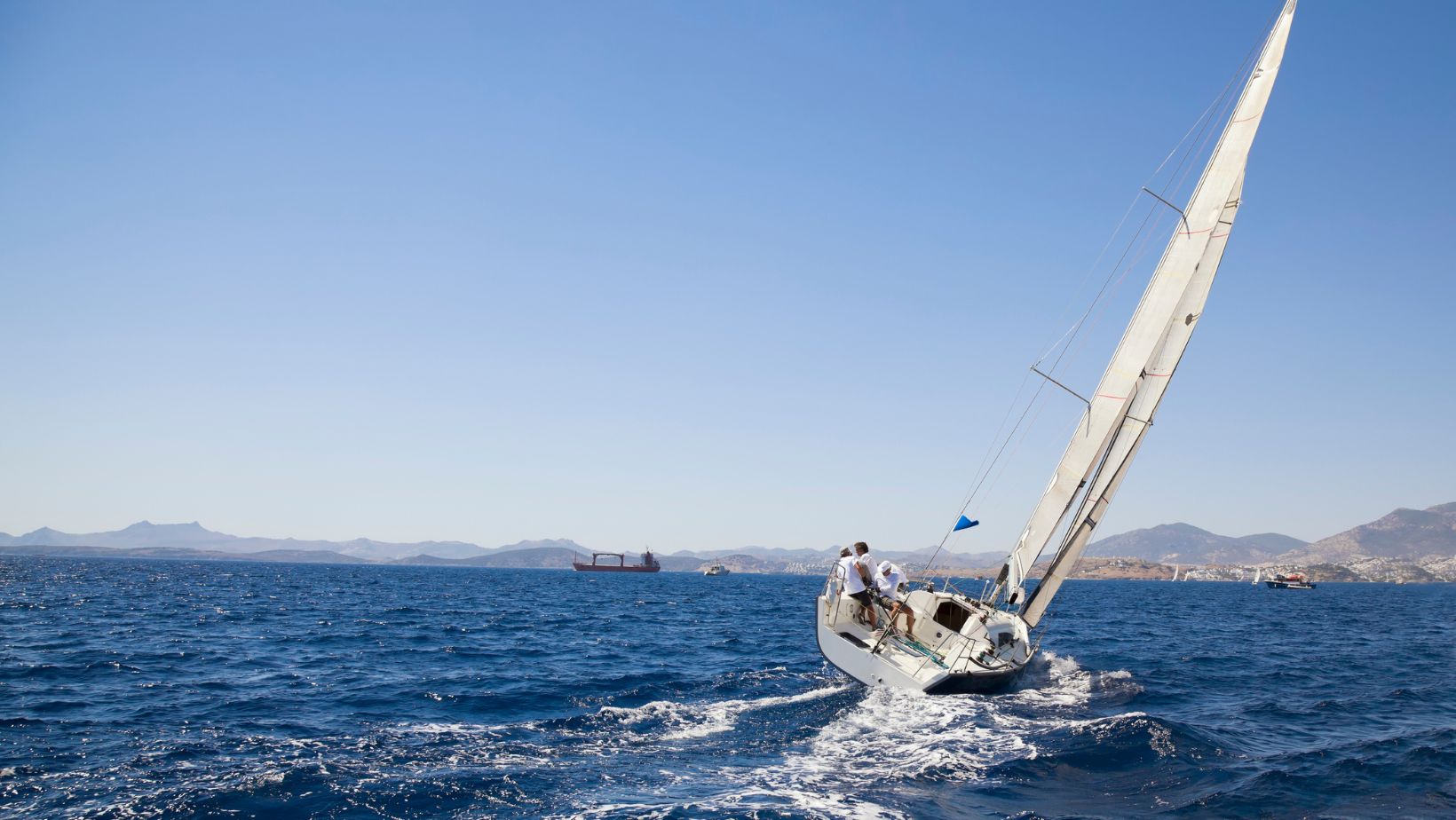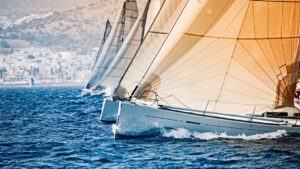Welcome to our blog! We’ll be your guide to all things sailing at the 2000 Olympics. There were a whopping 10 sailing events in the 2000 Olympics, so we’ll be busy! Join us as we explore everything from thestar class to windsurfing.
Introduction
The 2000 Summer Olympics, officially known as the Games of the XXVII Olympiad and commonly known as Sydney 2000 or the Millennium Olympic Games/Games of the New Millennium, were an international multi-sport event which was celebrated between 15 September and 1 October 2000 in Sydney, New South Wales, Australia. It was the second time that the Summer Olympics were held in Australia, and also the Southern Hemisphere, the first being in Melbourne, Victoria in 1956.
Sailing was contested at the 2000 Summer Olympics in Sydney. Eleven events were held from 16–27 September 2000.
The Sailing Events At The 2000 Olympics
The Sailing at the 2000 Summer Olympics in Sydney was held from 16 September to 1 October 2000 at the Sydney Harbour Foreshore. Eleven venues were used, all within the harbour foreshore. A total of eleven events were contested by 384 sailors, who represented 85 nations.
The Different Sailing Events
There was a total of 11 sailing events at the 2000 Summer Olympics in Sydney. The events were spread over 4 different disciplines:
- Windsurfing (2 events).
- Keelboat (2 events).
- One Design (4 event).
- Offshore Yacht Racing (1 event).
The Rules Of Sailing
##The Rules of Sailing are internationally agreed upon principles that govern the sport of sailing. They are created and maintained by World Sailing, the world governing body for the sport of sailing. The current edition of The Rules of Sailing is The Racing Rules of Sailing 2020-2024.

There were eleven sailing events at the 2000 Summer Olympics in Sydney, Australia. Fourteen races were scheduled in each event, for a total of 154 races. One hundred and fifty-six sailors, representing 56 nations, competed.
The Equipment Used In Sailing
The sport of sailing is unique in that the equipment used can greatly affect the outcome of a race. The type of boat, the sails, and even the keel can give one boat an advantage over another. At the Olympics, all boats are supplied by the event organizers, so sailors must be familiar with a variety of types and brands in order to be successful.
The most common types of boats used in sailing are monohulls, catamarans, and trimarans. Monohulls are traditional sailboats with a single hull and one or two masts. Catamarans are two-hulled boats that are joined by a framework, and trimarans are three-hulled boats with a similar structure. Each type of boat has its own unique advantages and disadvantages, so it is important for sailors to be familiar with all three.
Sails also come in a variety of shapes and sizes, and each sail is designed for a specific purpose. The three most common types of sails are mainsails, jibs, and spinnakers. Mainsails are the large sails located at the back of the boat, and they are responsible for propelling the boat forward. Jibs are smaller sails located at the front of the boat, and they help to steer the boat in different directions. Spinnakers are large sails that are used when racing downwind. They are usually brightly colored and easy to spot on the water.
Finally, the keel is a long fin-like structure located beneath the hull of a sailboat. Its purpose is to provide stability and keep the boat upright in water. Keels come in different shapes and sizes, and they can be made from various materials such as wood, aluminum, or lead. Some boats even have multiple keels in order to provide even more stability.
The History Of Sailing
The sport of sailing has a long and rich history. From early Polynesian cultures to the present day, sailing has been used for transportation, exploration, trade, and recreation.
Sailing events have been held at the Olympic Games since 1900. The 2000 Summer Olympics in Sydney, Australia featured 11 sailing events.
The sport of sailing is governed by two international federations: the International Sailing Federation (ISAF) and the International Yacht Racing Union (IYRU). ISAF is the world governing body for all dinghy, keelboat, and multihull racing. IYRU is the world governing body for all yacht racing other than racing onboard monohull yachts with a crew of three or fewer people.
How Many Sailing Event Were There in The 2000 Olympics
The future of sailing looks very exciting with new events being added to the Olympic programme and more opportunities for para-sports athletes to compete. We are also seeing a growth in popularity of the sport, with more people taking up sailing and enjoying the many benefits it has to offer.

There are a number of new initiatives that are helping to shape the future of sailing, including:
- The introduction of mixed gender events at the Tokyo 2020 Olympics.
- The inclusion of kiteboarding as a medal event at the Paris 2024 Olympics.
- The development of foiling technologies that are making the sport faster and more exciting.
- The growth of women’s sailing, with more female sailors than ever before taking up the sport.
- These are just some of the ways that sailing is changing and evolving, making it an even more exciting and popular sport in the years to come.


